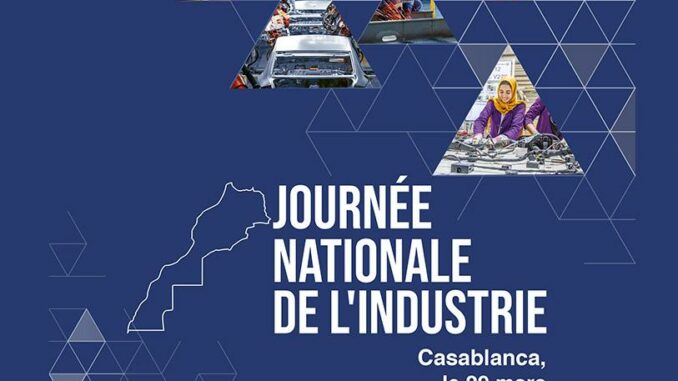
Morocco’s industry which is based on the principle of global economic openness and relies on ambitious and clearly defined strategies that are deployed in the context of a comprehensive territorial vision, has made of the Kingdom an inevitable destination in the global market for some advanced sectors.
The remarks were made by King Mohammed VI in a message addressed to the National Industry Day which kicked off in Casablanca this Wednesday.
Morocco has today become an inevitable destination in the global market for some advanced sectors, and the key to this success is that the national industry is based on the principle of global economic openness and relies on ambitious and clearly defined strategies, and deployed in the context of a comprehensive territorial vision, stressed the Sovereign in the message, which was read by Minister of Industry and Trade, Ryad Mezzour.
The King cited, as an example of this success, the automotive sector in which the Kingdom has become a continental leader, as well as well as aviation in which it provides an attractive platform to produce the equipment, components and spare parts needed by these industries.
Over the past two decades, Morocco has made significant progress in the industrial field and these strategies have been designed to “make industry a crucial lever for economic development in Morocco, a major source for the creation of jobs, a stimulus for productive investment and exports, and a driving force for growth and development for the benefit of citizens,” said the King.
These strategies were accompanied by the development of industrial, logistical and energy infrastructure, not to mention structural reforms to improve the business climate, reinforce qualifications and skills, and enhance the competitive edge of the Moroccan industry, the Sovereign added.
Thanks to these gains and to the Kingdom’s political and macro-economic stability and to industrial expertise and geographical proximity to promising markets, the Moroccan industry has managed to carve out a place for itself in highly technical professions and specializations, thus becoming an engine for growth, production and export, the Sovereign pointed out.
In parallel, the Kingdom has strengthened its position as a key player in food security in the world – particularly in Africa – through the development of the fertilizer industry, providing farmers with reasonably priced, high-quality products that take into account soil and crop needs in each region, the Sovereign stated further.
“Our food industry has also been contributing to the valorization of Morocco’s fish and agricultural resources, and to the consolidation of our country’s food sovereignty.”
As for the textile and leather sector, it has benefited from the shifts which have affected global value chains, focusing more closely on sustainable, high value-added market segments, underlined the Sovereign.
“The resilience of our industry in the face of challenges has been enhanced thanks to the important role played by these industrial sectors, as well as others, which have seen similar growth, especially in terms of exports,” he added, stressing that “these sectors not only made it possible to mitigate the impact of the COVID-19 crisis, but they also played a crucial role in strengthening our country’s industrial, health and food sovereignty.”
The Sovereign also called for including this National Industry Day in the calendar of major economic events as an annual get-together for industry and the stakeholders involved.
“I also want the next Industry Day sessions to be held at regional level to shed light on local industrial capabilities and look into the specific challenges faced by each region,” added king Mohammed VI.
